“Thousands have lived without love, not one without water.”
Poet W.H. Auden beautifully captures the essence of water for life in these few words. In a startling study of statistics, it is estimated that only 18% of total rural population of 833 million Indians have access to treated water. In comparison, 41% of the rural population, or 346 million people, own mobile phones. The situation is worse in the only desert state of the India, Rajasthan.
Consisting of approximately 10% of land area, 5% of the total population, the State has only 1% water of the Country. A 2012 report of Rajasthan State Action Plan on Climate Change reveals that Rajasthan has the highest probability of drought in India. The State of Rajasthan, under CM Vasundhara Raje, has earmarked 2016 as the ‘Year of #JalKranti’.
All about MJSA
With a vision to find long-term solution for a water-sustainable Rajasthan, CM Vasundhara Raje has recently announced her most ambitious scheme “Mukhyamantri Jal Swavlamban Abhiyan (MJSA) to conserve and harvest rain water and make villages self-reliant even during drought periods. The programme has been designed in such a way that everything from planning to execution shall be followed in a participatory approach down to the village community level.
The scheme is created with the idea of natural resource management with hydrological unit as a base to develop water, forest and land. The purpose of this Mission on Water Conservation is to make villages self-sufficient in water use and thus provide a permanent solution to the demand of drinking water besides ensuring storage and conservation of water for making it available for irrigation. In first year around 3000 villages on the basis of priority will be identified and, in coming 3 years, by including around 6000 villages every year, 21000 villages of the State will be benefited by the mission & permanent solution will be achieved by making them self sufficient in terms of water.
Some of the key objectives of the programme are:
- To create a water sustainable Rajasthan
- To increase the irrigated area
- Ensure effective water conservation through convergence of resources of different departments
- To create awareness about community participation in water management
- To prepare a village action plan through water budgeting via community participation
- To make the village a self sufficient unit in drinking water through sustainable measures
Four Waters Concept
Four waters concept, which has been successful in countering drought and averting migration of labour in China, is quite relevant to the drought-prone Rajasthan. This low-cost technology can increase recharge of groundwater by four times and provide thrice the benefit than conventional modes.
The Four Waters concept revolves around the harvesting of available runoff (rain water, ground water, under-ground water & in situ soil moisture) in rural areas by treatment of catchment, proper utilization of available water harvesting structures, renovation of the non-functional water harvesting structures & creation of new water harvesting structures. It also includes development of
forest, land, water & fauna keeping watershed/cluster/index as a unit for natural resource management.
Water Budgeting
To ensure effective implementation of water conservation and water harvesting related activities in rural areas, convergence of schemes of various departments has been carried out. The planning also involves ensuring people’s participation through both education and motivation at the village level. A unique concept of water budgeting is being introduced in Gram sabhas where after determination of usage of water (for drinking, irrigation, livestock & for other commercial purposes) & a water budget will be prepared to conserve water available from various resources and accordingly, works will be identified and approved for the preparation of action plan of the mission.
Water for all – by all
The root of the campaign lies in the premise that problem can be solved at its source if rural indigenous communities are mobilized to produce water — that is, to increase the supply of water available for their own needs and, by extension, for society as a whole. Increasing society’s ability to produce water, as well as use it more efficiently, can bring about an interrelated series of benefits that will dramatically improve environmental, sanitary, and productive conditions among some of the poorest social groups. It involves a bottom-up approach of involving the primary stakeholders in planning, designing, developing and management of water conservation activities. Overall, primary efforts are being made to create a sense of ownership among villagers for construction of water harvesting/conservation structures and their maintenance.
Crowd-Funding
For the Rajasthan Government, the problem looks gigantic and resources are scarce. Probably for the first time ever, the Rajasthan Government has created an online crowd-funding portal where donations for the campaign shall be accepted to a single rupee. The portal consists of a unique feature through which one can adopt a village or a lake in Rajasthan and contribute for the same. With planning in initial stages, there is a discussion of making contributions enabled through e-mitras and web payment gateways.
CM Raje has set out on a mission mode, calling on all stakeholders across the State to contribute to the campaign – the government departments, Non-Government Organizations, civil society, religious institutions and leaders from all political parties. The Government is also set to invite Businesses to contribute towards MJSA through a CSR sub-campaign. Another sub-campaign called ‘Chalo Rajasthan’ will be soon launched to call on the non-resident Rajasthanis to contribute to the mission. CM Vasundhara Raje has appealed to all the people of Rajasthan to step in, join hands and work together for the cause of this Jal Kranti.
In the spirit of ‘charity begins at home’, Chief Minister Raje herself announced to contribute her salary of six months to support the Jal Swavlamban Abhiyan. On her call, people representatives and all ministers and mayors announced a donation of 3 months’ salary along with zila pramukhs donating their two months’ salaries. MPs, MLAs and board Chairpersons also pledged their one-month salary to the cause.
How can You contribute
- Any citizen can donate any amount through this portal: http://water.rajasthan.gov.in/mjsa
- Corporate Sector, Non- Governmental Organizations & Religious Trusts have full freedom to execute plan of any particular village as a whole or a particular work of village plan, by themselves as per guidelines.
- May adopt any village as a whole or works of a particular village and can execute works themselves under technical guidance of Line Department.
- In addition to above, may contribute funds to bridge Financial Gaps for works proposed in village plan.
While the world’s rising requirement for water is a big threat for the future, the story is more complicated than just too many people putting their straws in the glass. The growing conflicts over water use are worrying and it seems that human race has taken water for granted and massively misjudged the capacity of the earth’s water systems to sustain the demands made upon it. In crisp white letter, water conservation ought to be, and must be, the foremost agenda for any government. Water is known to take many forms; we must not force it to take a fatal one. In hindsight, this bold move of Vasundhara Raje is greatly warming and welcome.


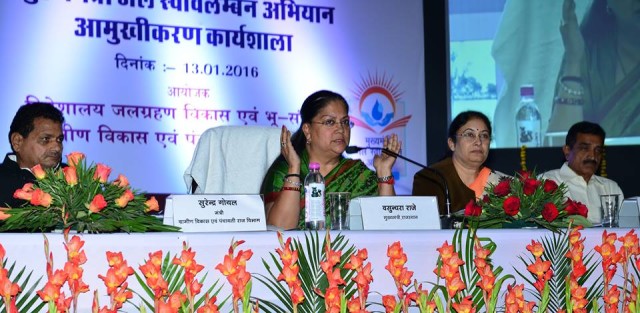
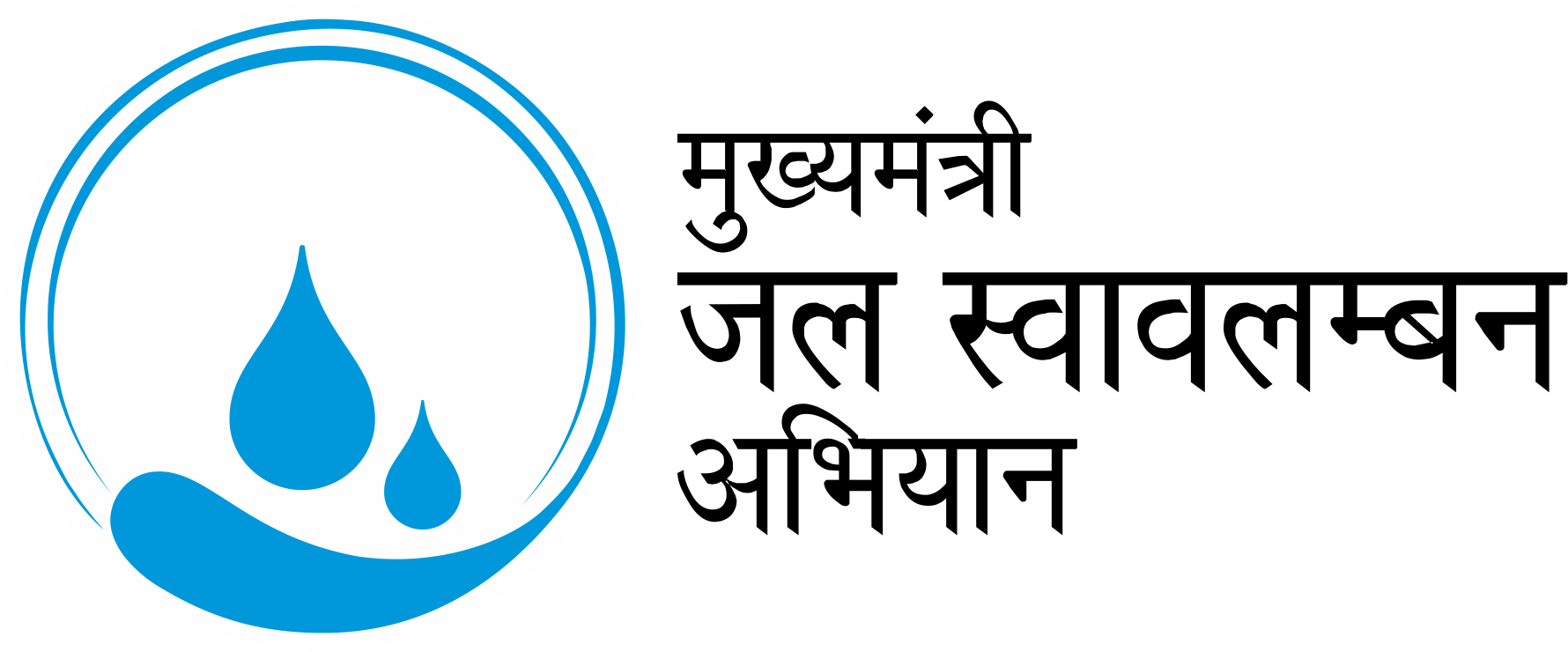
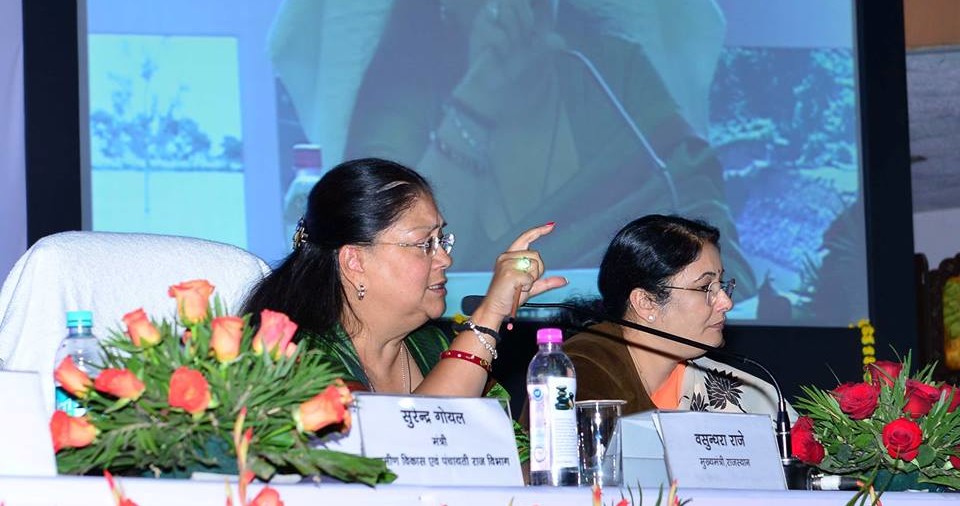
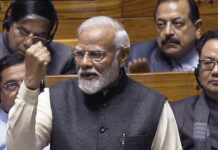
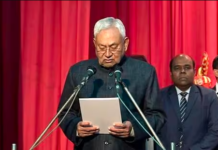
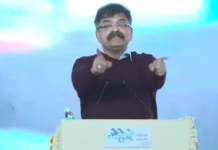
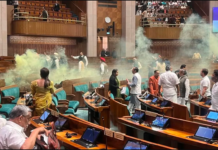

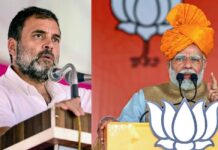




I want join to mjsa.
[…] the state government’s philosophy of water management can easily be seen in the new water scheme Mukhyamantri Jal Swavlamban Abiyan that has been lately launched in the state. She added, “The immediate objective of this campaign […]